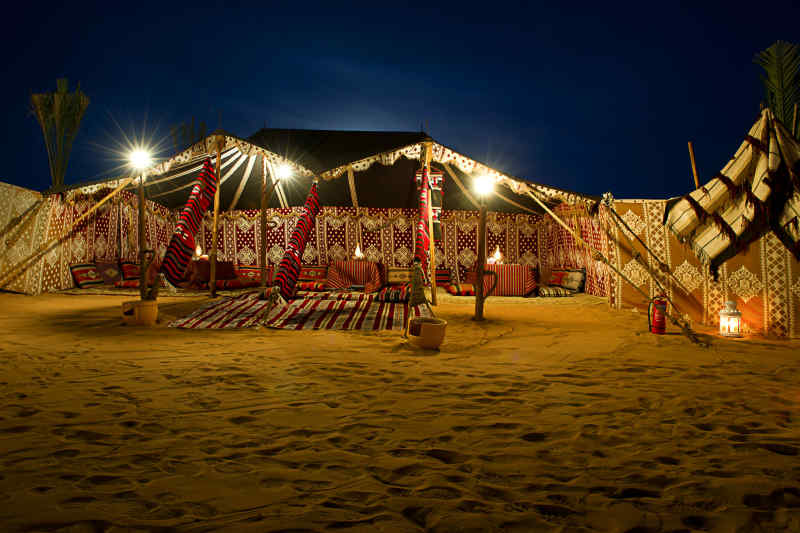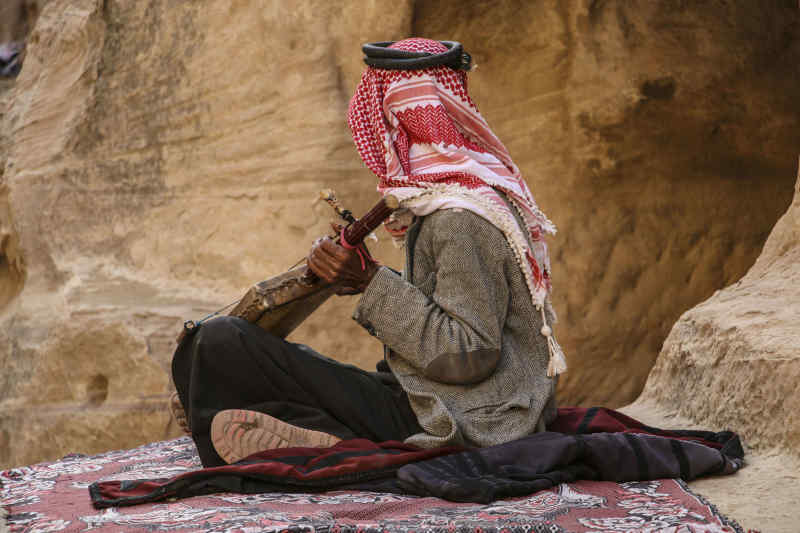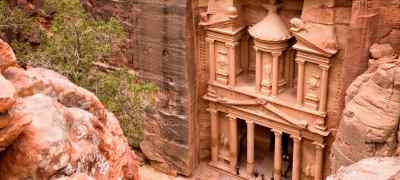By Rachael Funk
Bedouins, also spelled Beduins, are nomads who generally live in Jordan, Iraq, Saudi Arabia, Yemen, Oman, and Egypt. The term Bedouin means “desert people” and is an Anglicization of the Arabic word bedu. It was traditionally used to differentiate between nomads who made a living raising livestock and those who worked on farms or lived in towns.
[View Vacation Packages >]/trips-to/asia
Famous for their arduous lifestyle and warm hospitality, the Bedouins have a history which reaches back several millennia. Here are some interesting facts about the customs and hospitality of the Bedouin tribes.
Bedouins sometimes touch noses as a greeting
A custom linked with pride and dignity, rubbing noses (sometimes touching foreheads or even kissing) shows friendship and respect and is seen as an act of hospitality. It is uncertain when this tradition began, but nose rubbing has been a symbolic part of the culture for at least 15 centuries.
Various dialects of Arabic are spoken
The precise language of each tribe can vary by region. Bedu Arabic can refer to Bedawi Arabic, which is mostly used in eastern Egypt; Hassaniya Arabic, which was originally spoken by the Beni Hassan Bedouin tribes; Libyan Arabic or Sulaimitian Arabic, which is spoken in Libya and surrounding areas; Najdi Arabic, which is often spoken in central Saudi Arabia; or Saharan Arabic, which is a form of Arabic used in Algeria. Bedu Arabic has been compared in style to Shakespearian English.
They take hospitality very seriously
Hospitality is considered an honor and sacred duty among the Bedouin. The expectation within the culture is that Bedouins will boil their last rice and kill their last sheep to feed a stranger. Visitors are often invited in to share coffee and are absorbed into the host’s household for the duration of the stay. In an interview with National Geographic, a Bedouin said, “…even if my enemy appears at this tent, I am bound to feast him and protect him with my life.”
Many Bedouins are Muslim
Identifying as Sunni Muslims, Bedouins usually observe Muslim holidays and traditional Muslim customs. Whenever an animal is slaughtered, it is ritually sacrificed in accordance with Islamic law. In the 7th century, Bedouins were among the first to convert to Islam. They usually follow Muslim practices for funerals and burials as well, though graves are usually unmarked. An effort may be made to bury family members close to each other, but sometimes it is impossible to get there within the 24-hours allotted by Muslim law.
Dates are a staple of the Bedouin diet
Bedu cooking focuses on quantity over style. A traditional diet is comprised mostly of camel milk, rice, dates, bread, and, on special occasions, meat. Fish is eaten by those who live along the coast, but hard to get in the desert. Cooking is done over an open fire, and meals are a social event. Food is usually served in a large bowl and everyone sits on the ground and eats communally with their hands. At the end of the meal, coffee is served from a brass coffee pot.
Camels are treated like children
In a traditional division of labor, women usually care for livestock such as goats and sheep, while men take care of the larger animals. Camels are called the Gift of God, or “Ata Allah” as they provide transport, milk, clothing, and food. Great care is taken to ensure camels are properly cared for and it is agreed the camels care for their owners in return.
Poetry is considered the highest art
Poems are often accompanied by a one-stringed violin, called a rabab. Other oral literature enjoyed by the Bedouins include folklore, odes, riddles, and proverbs. Bedouin music features a clarinet, rhythm, and chanting. Al-Huda caravan chants were created to use during treks to help keep the camels’ spirits up. One story says the caravan songs were so successful, the camels would reach the end of their journey lively and energized, but if the drumming and singing stopped, they would drop dead from exhaustion.











